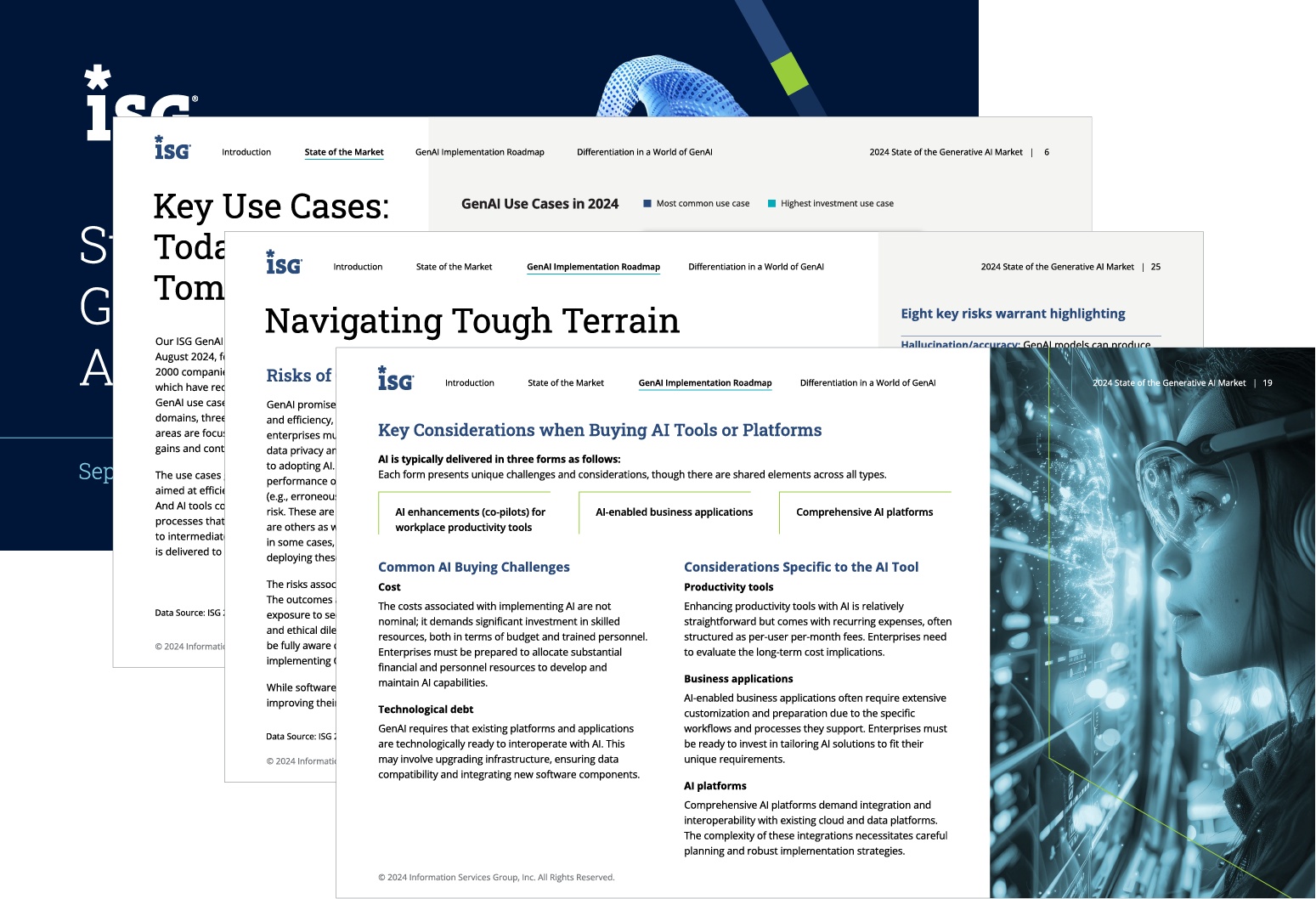The success of AI adoption relies on creating robust organizational and governance structures that accelerate AI adoption while managing risks. Cognitive infrastructures incorporating hybrid cloud, security, privacy, intelligent edge, and purpose-built AI solutions are changing the IT landscape, making technology adoption more difficult. Integrating model-aware computing is crucial for optimized AI performance and responsiveness. We help you select the right use cases and build the business case to accelerate adoption.



.png?sfvrsn=a4bed531_0)
.png?sfvrsn=2fbed531_0)
.png?sfvrsn=66bed531_1)

